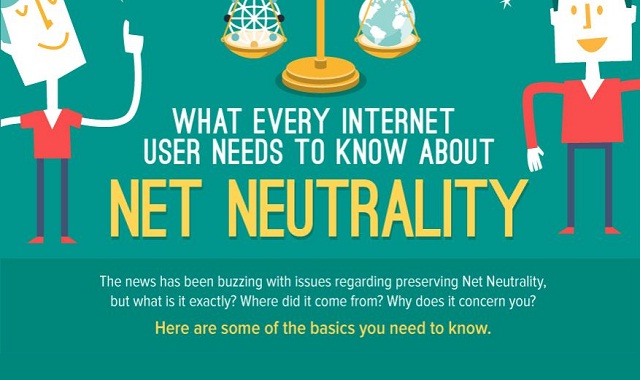What is Internet neutrality?
Internet neutrality is the principle that Internet service providers must treat all data on the Internet, in a way that does not discriminate in it.
Although content diversity, sites, platforms, applications, type of equipment attached, or method of communication, will remain completely neutral.
For example, under these principles, Internet service providers can not. Prevent, slow down, or charge additional fees for certain websites, or any content maker online.

The term was coined in 2003 by Professor of Information Law at Columbia University Tim Wu.
Examples cited have been widely cited. In violation of the principles of absolute neutrality, is the strange slowdown by Comcast, to provide the Internet resulting in:
("Throttle") uploads by file sharing applications, by using fake packages.
The concept of Internet neutrality is based on the impartiality of dealing with all Internet data. Without distinction between them and according to Professor Tim Wu, the creator of this term and principle, it means the idea of neutrality:
"It clearly shows that the best way to understand the neutrality of the Internet is that the information on the Web would be better used if we treated the data in a neutral way without any distinction or discrimination."

FEATURE BY USER PROTOCOL:
Let's say, for example, make a communication protocol favor someone on another account. Or by blocking, or banning, anyone's account, either for the interests of the private company, or for certain entities.
This is a type of cybercrime violation, as Comcast has done when it has slowed file sharing over the Internet in some BitTorrent programs
Hi! I am a robot. I just upvoted you! I found similar content that readers might be interested in:
https://en.wikipedia.org/wiki/Net_neutrality